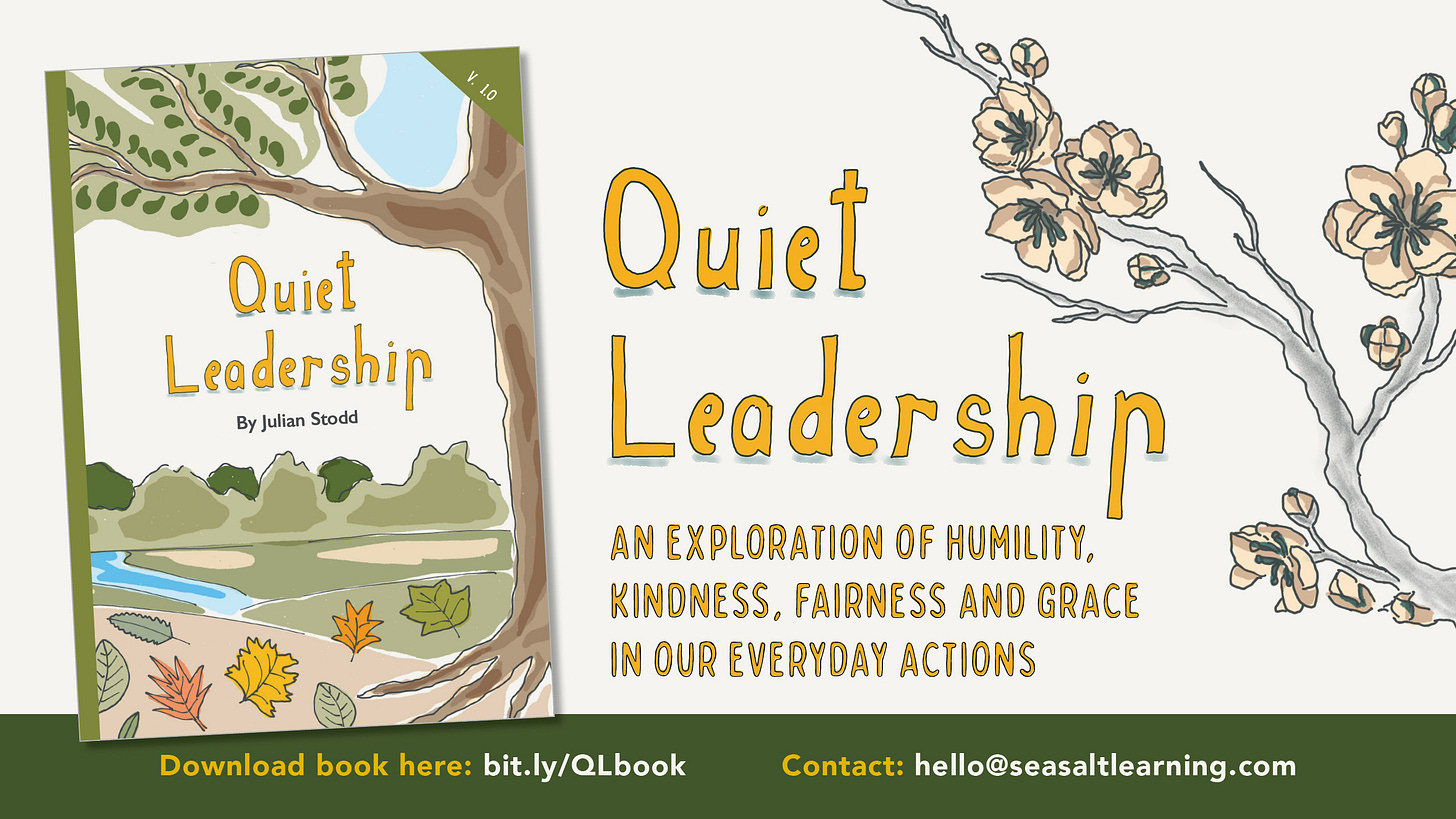Day #128
Opinions
We talk bout ‘forming an opinion’, as opposed to simply ‘finding one. Opinions illustrate how we hold our knowledge within stories: some that we are told, and others that we write ourselves, and rewrite over time (or hold onto with a dogged ferocity).
Use your sixty seconds today to think of an opinion that you have changed, and one that you have not.
Let me share an example - it’s nothing very big and clever, concerning nothing more exciting than the nappies/diapers for the baby.
Before we had children, i read the research about disposable nappies, and determined together that we would try reusable ones. That worked ok with our first. But when Meadow arrived four months ago, the habit kind of broke, and with it our opinion changed. We felt a bit overwhelmed, and rationalised why, but we have not used a reusable one since.
The facts remain the same, but we have rewritten our story, reformed our opinion, based upon context and circumstance. Or to put it another way, we have taken the easy way out.
Of course, there may be more nuance than that: maybe my opinion of disposable nappies has not changed, but my actions have, creating a disconnect. After all: opinions are not deterministic of action, although they may inform it.
Perhaps one way to view opinion is as a set of maps that we have on a shelf: they are easily accessible, for those times when we wish to walk down a familiar path. But it’s always the same route. Take us into a new area, and we get lost, until we draw a new map, and hence hold a new opinion.
Being aware of how opinion forms, of how, or even whether, it changes, may be valuable to understand part of how our leadership is held within stories, the theme we are exploring this week.


